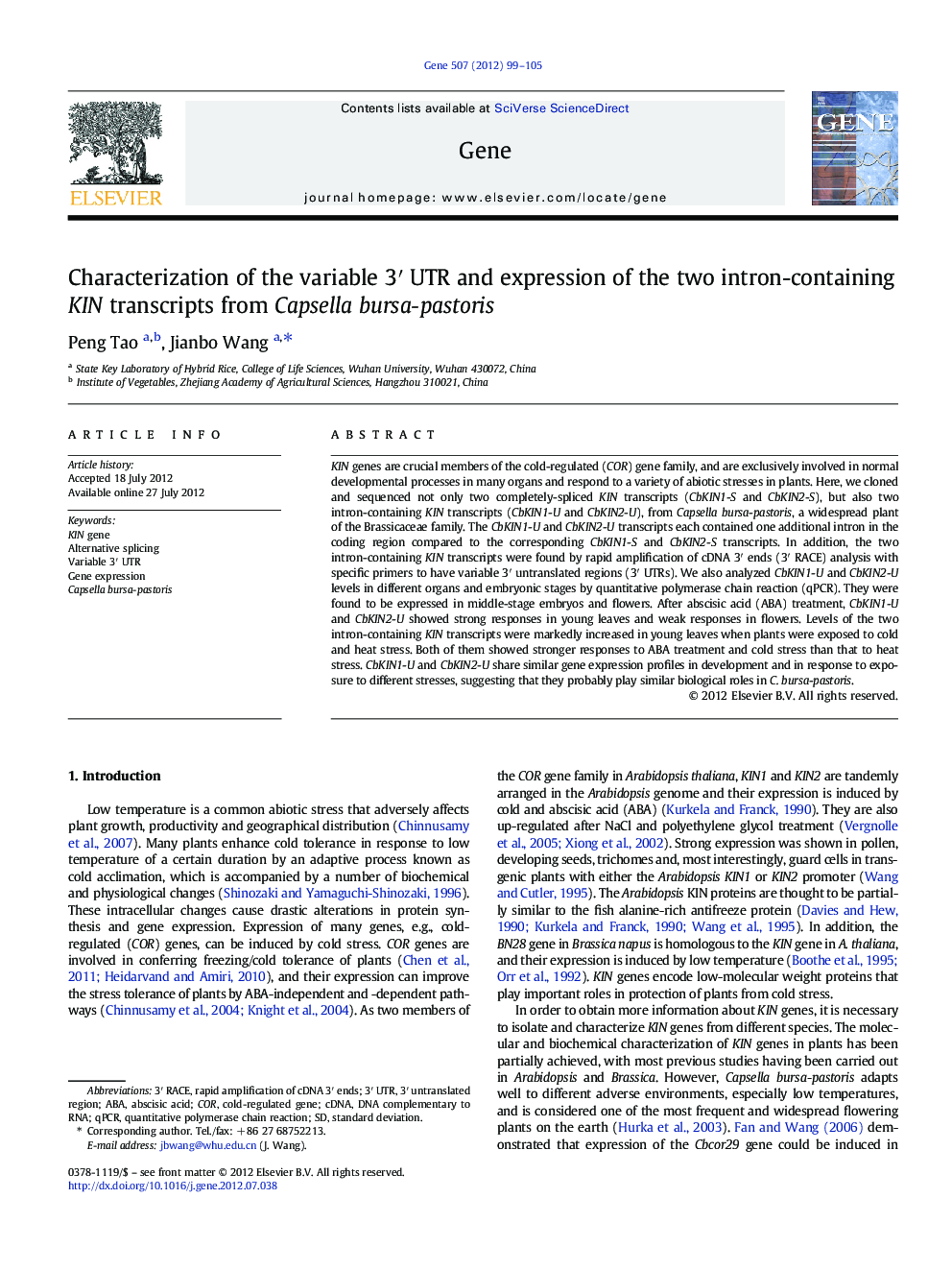| Article ID | Journal | Published Year | Pages | File Type |
|---|---|---|---|---|
| 2817669 | Gene | 2012 | 7 Pages |
KIN genes are crucial members of the cold-regulated (COR) gene family, and are exclusively involved in normal developmental processes in many organs and respond to a variety of abiotic stresses in plants. Here, we cloned and sequenced not only two completely-spliced KIN transcripts (CbKIN1-S and CbKIN2-S), but also two intron-containing KIN transcripts (CbKIN1-U and CbKIN2-U), from Capsella bursa-pastoris, a widespread plant of the Brassicaceae family. The CbKIN1-U and CbKIN2-U transcripts each contained one additional intron in the coding region compared to the corresponding CbKIN1-S and CbKIN2-S transcripts. In addition, the two intron-containing KIN transcripts were found by rapid amplification of cDNA 3′ ends (3′ RACE) analysis with specific primers to have variable 3′ untranslated regions (3′ UTRs). We also analyzed CbKIN1-U and CbKIN2-U levels in different organs and embryonic stages by quantitative polymerase chain reaction (qPCR). They were found to be expressed in middle-stage embryos and flowers. After abscisic acid (ABA) treatment, CbKIN1-U and CbKIN2-U showed strong responses in young leaves and weak responses in flowers. Levels of the two intron-containing KIN transcripts were markedly increased in young leaves when plants were exposed to cold and heat stress. Both of them showed stronger responses to ABA treatment and cold stress than that to heat stress. CbKIN1-U and CbKIN2-U share similar gene expression profiles in development and in response to exposure to different stresses, suggesting that they probably play similar biological roles in C. bursa-pastoris.
► Alternative splicing was found firstly in KIN gene of Capsella bursa-pastoris. ► Variable 3′ UTRs existed in KIN transcripts across cruciferous plants. ► These KIN transcripts were involved in development and response to stresses.
